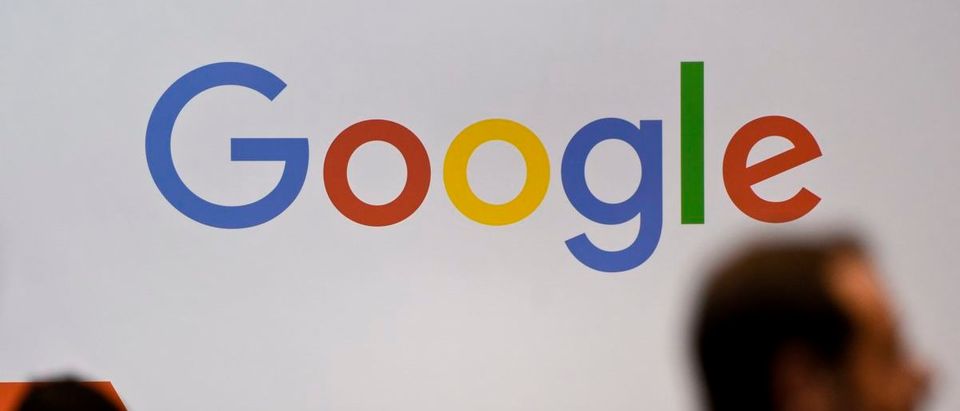Google’s communications department took the time Tuesday to tweet criticism of a Daily Caller story on their media “blacklist,” but refused to answer what supposedly makes the story “purposefully misleading.”
In a set of three Tweets, Google’s team insisted that the company does not “manipulate” search results “to fit a particular political ideology,” but admitted “we do not allow sites that have violated our policies.”
Google declined to refute the central tenet of the story, which revealed that Google maintains a manually-collated media “blacklist.” The company also refused to explain how, if not manually selected, websites like The American Spectator or the Conservative Tribune ended up on the blacklist. (RELATED: Documents Detailing Google’s News Blacklist Show Manual Manipulation Of Special Search Results)
Google’s criticism came in a three-tweet response just hours after the Caller published the story.
This story seems purposefully misleading. Google has never manipulated Google Search results to fit a particular political ideology. The story finds zero evidence to the contrary.
— Google Communications (@Google_Comms) April 9, 2019
We have policies for Google News to ensure that we’re surfacing news, from sites like Daily Caller in fact, and not deceptive or sponsored content: https://t.co/oiIqYzBnsA
— Google Communications (@Google_Comms) April 9, 2019
In Google News and Search features like info boxes or news carousels, which users may interpret as a signal of the site’s credibility, we do not allow sites that have violated our policies. This does not apply to organic blue-link Google Search results.
— Google Communications (@Google_Comms) April 9, 2019
The Daily Caller reached out to Google’s press team two hours after the tweets were sent to ask what “seems purposefully misleading” in our reporting.
“Beyond our statement that refutes your characterization of our policies, this series of tweets largely captures how the story distorted the situation,” wrote a Google spokesperson in response to multiple requests for clarification.
The tweets the spokesman linked to were from Julian Sanchez of the Cato Institute, which receives Google funding according to the company’s transparency page.
But if a special curated section of results Google is willing to present as “news” includes National Review & excludes Gateway Pundit or Infowars, that’s not really suggestive of bias against conservatives. It’s suggestive of good judgment.
— Julian Sanchez (@normative) April 9, 2019
In addition, Berin Szoka of TechFreedom, a Google-funded tech policy operation, also pushed back against The Daily Caller’s reporting on Wednesday.
Today’s “bombshell” about Google “censoring conservative websites” is just more M????GA
1) Sites still show up in search results
2) OF COURSE Google doesn’t feature in “news results” bat-shit crazy conspiracy theory sites that feed the fever swamps of the right as real journalists— Berin Szóka (@BerinSzoka) April 10, 2019
There is absolutely no reason why Google or any other social media site should be expected to feature this kind of fake news horse shit alongside legitimate news outlets
Any more than Alex Jones is equivalent to CNN
— Berin Szóka (@BerinSzoka) April 10, 2019
Szoka has admitted to dining with Richard Spencer in 2008 and was once quoted in his college paper saying the only positive aspects of Indian culture came from British colonialism. Google’s press representatives were asked if, given the company’s capitulation to a political loyalty test in dropping the AI advisory board over its appointment of Kay Coles James, they expected policy shops they pay in Washington to adhere to the same political standards. No reply was received as of press time. (RELATED: Meet The Five Google Staffers Who Circulated The Petition To Drop Kay Coles James)
While editorial decision-making is probably inevitable in a product like Google News, the documents published by the Daily Caller indicate that the blacklist is applied to more products than just Google News. Whether or not Sanchez’s tweets “largely capture” any distortion is still up for debate, since sites like the American Spectator or Matt Walsh’s blog do not appear to be sponsored or deceptive, which are the company’s stated policy justifications for blacklisting.
Infowars and other conspiracy sites notwithstanding, there is no indication the authors and editors at American Spectator believe in ‘crisis actors.’ Nor is there any indication that Matt Walsh is more than just a very popular conservative media personality. Someone or some group at Google is making the decision to add media outlets to the blacklist, and Google refuses to be transparent about this decision-making process. (RELATED: Applause At Google’s All-Hands Meeting As Company Drops Heritage Foundation President)
Tuesday’s House Judiciary hearing, on white nationalism on social networks, included Alexandria Walden, a lawyer for Google. Wednesday’s Senate Judiciary Committee hearing was supposed to include a Google official. The company intended to send Max Pappas, according to Axios, who works in conservative outreach for the company, but the committee reportedly rejected him.


